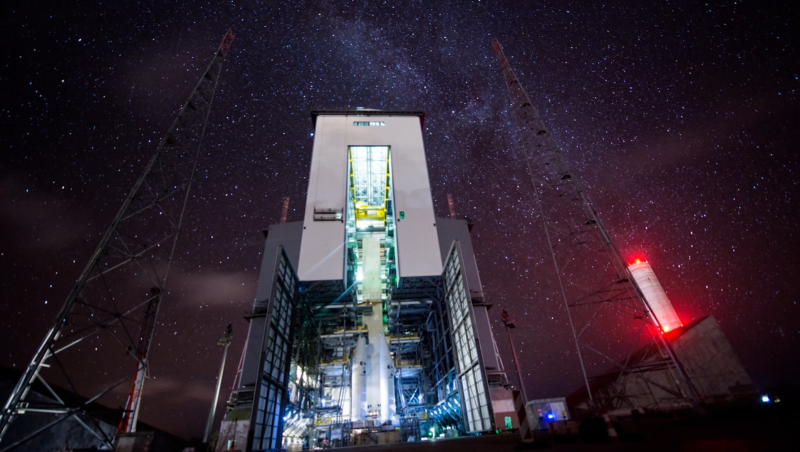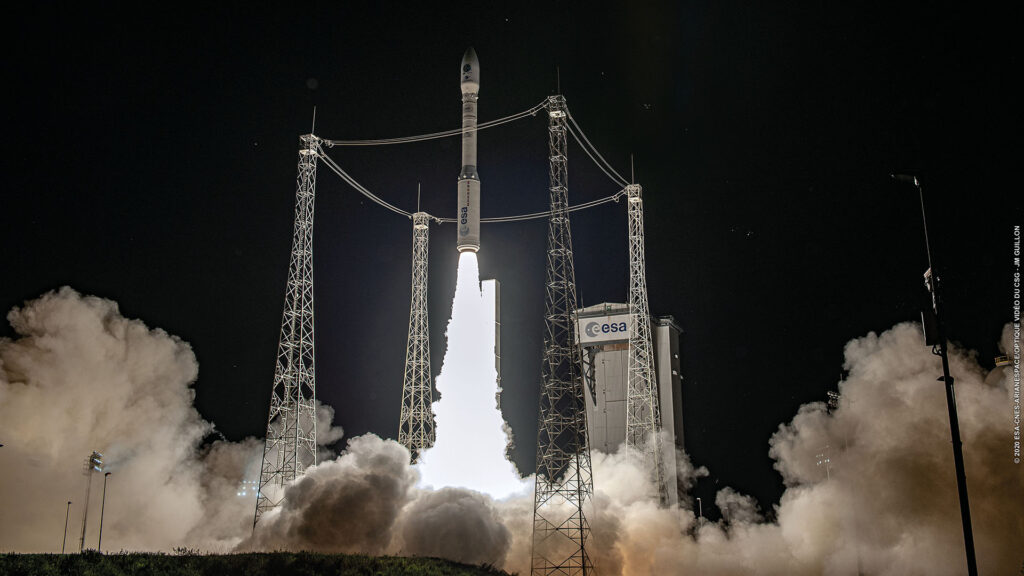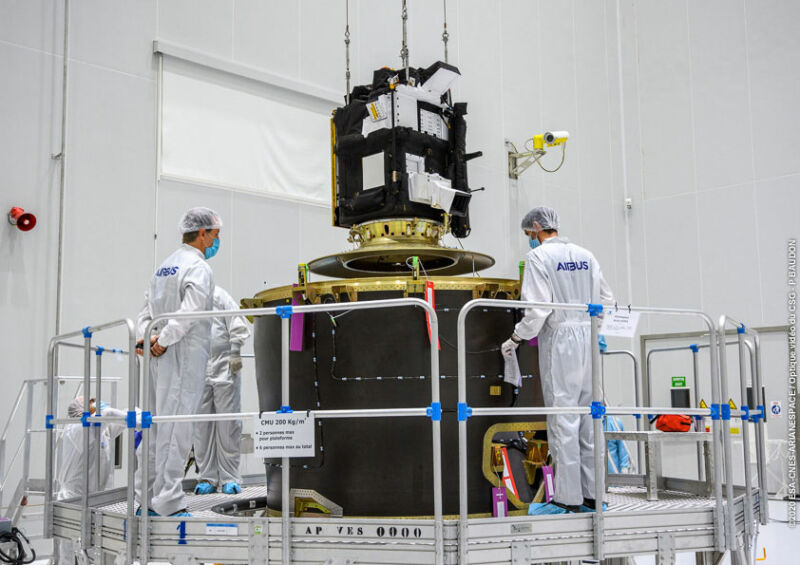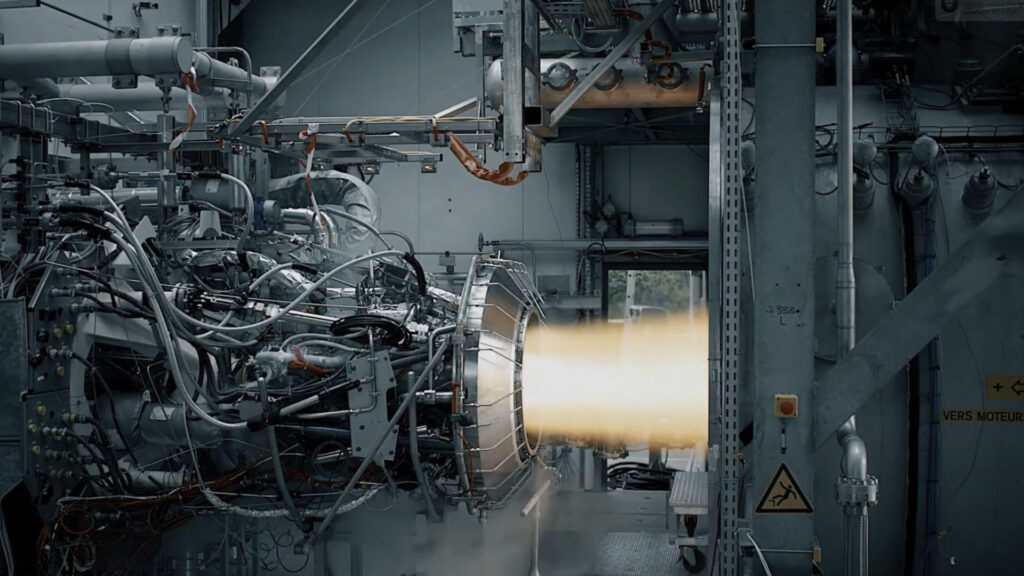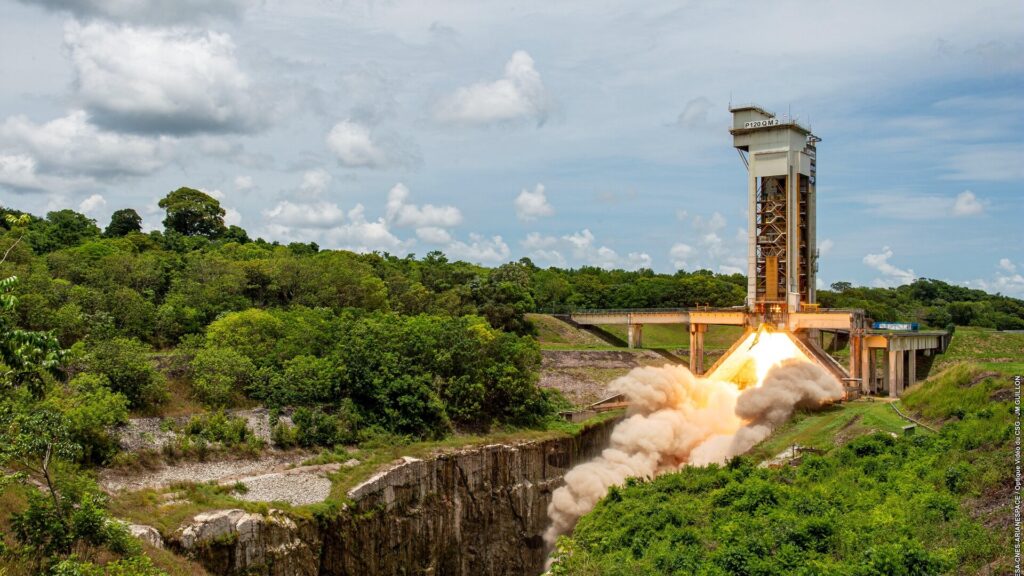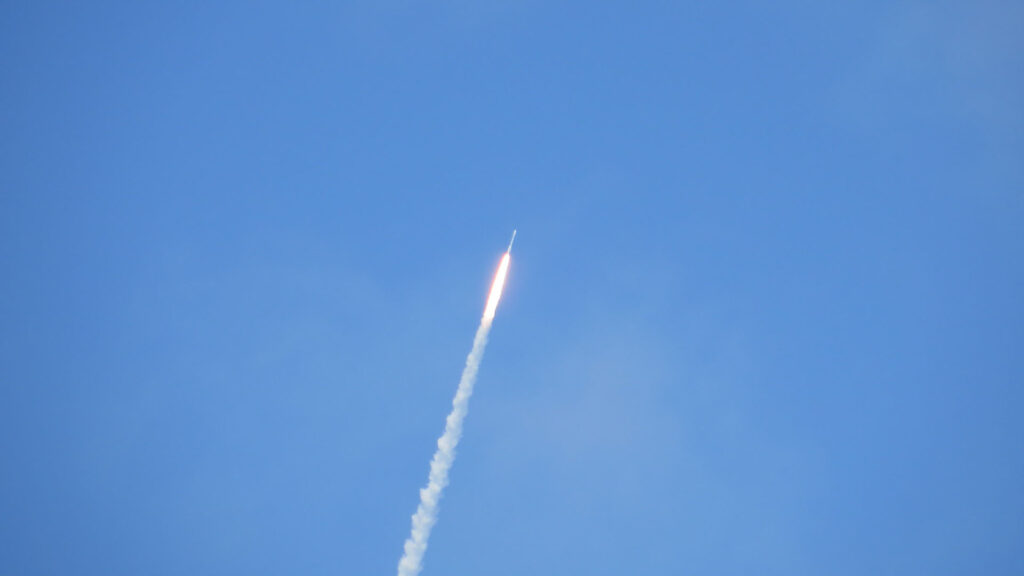-
 chevron_right
chevron_right
Seven-minute hotfire test moves Europe’s Ariane 6 rocket closer to flight
news.movim.eu / ArsTechnica · Tuesday, 28 November - 12:38
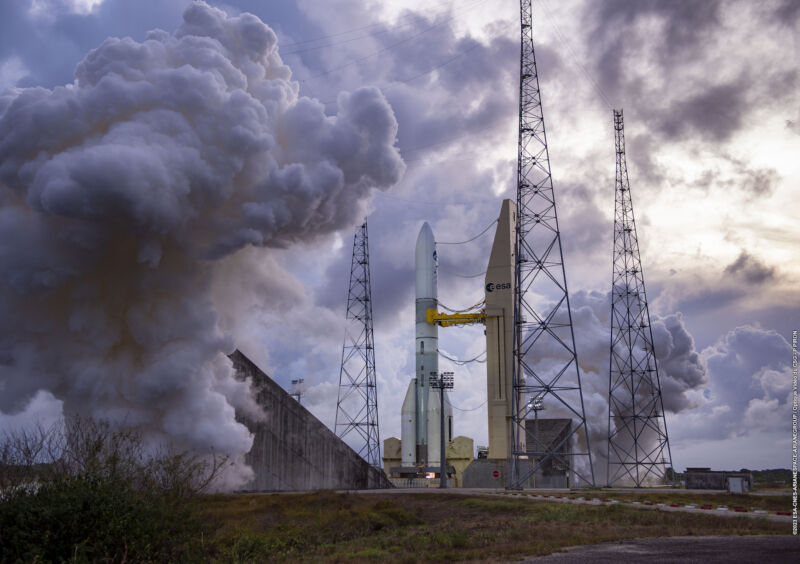
Enlarge / Exhaust plumes from the Ariane 6 rocket's main engine rise above the launch pad in French Guiana. (credit: ESA/CNES/Arianespace/P. Piron )
The European Space Agency (ESA) declared success after an Ariane 6 rocket fired its core stage engine in French Guiana for seven minutes on Thursday, clearing one of a handful of remaining hurdles before the new launcher can lift off on its first test flight.
The Ariane 6's inaugural launch, now scheduled for next year, has been delayed repeatedly since ESA approved the new rocket for development in 2014. The test-firing of the Ariane 6 main engine on a launch pad at the Guiana Space Center in South America last week was the most significant test not yet accomplished on the rocket's preflight checklist.
The test lasted 426 seconds—a little more than seven minutes—while a full-size test model of the Ariane 6 rocket remained on its launch pad. In order for the rocket to actually take off, it would need to light its four strap-on solid-fueled boosters. That was not part of the plan for Thursday's test.

